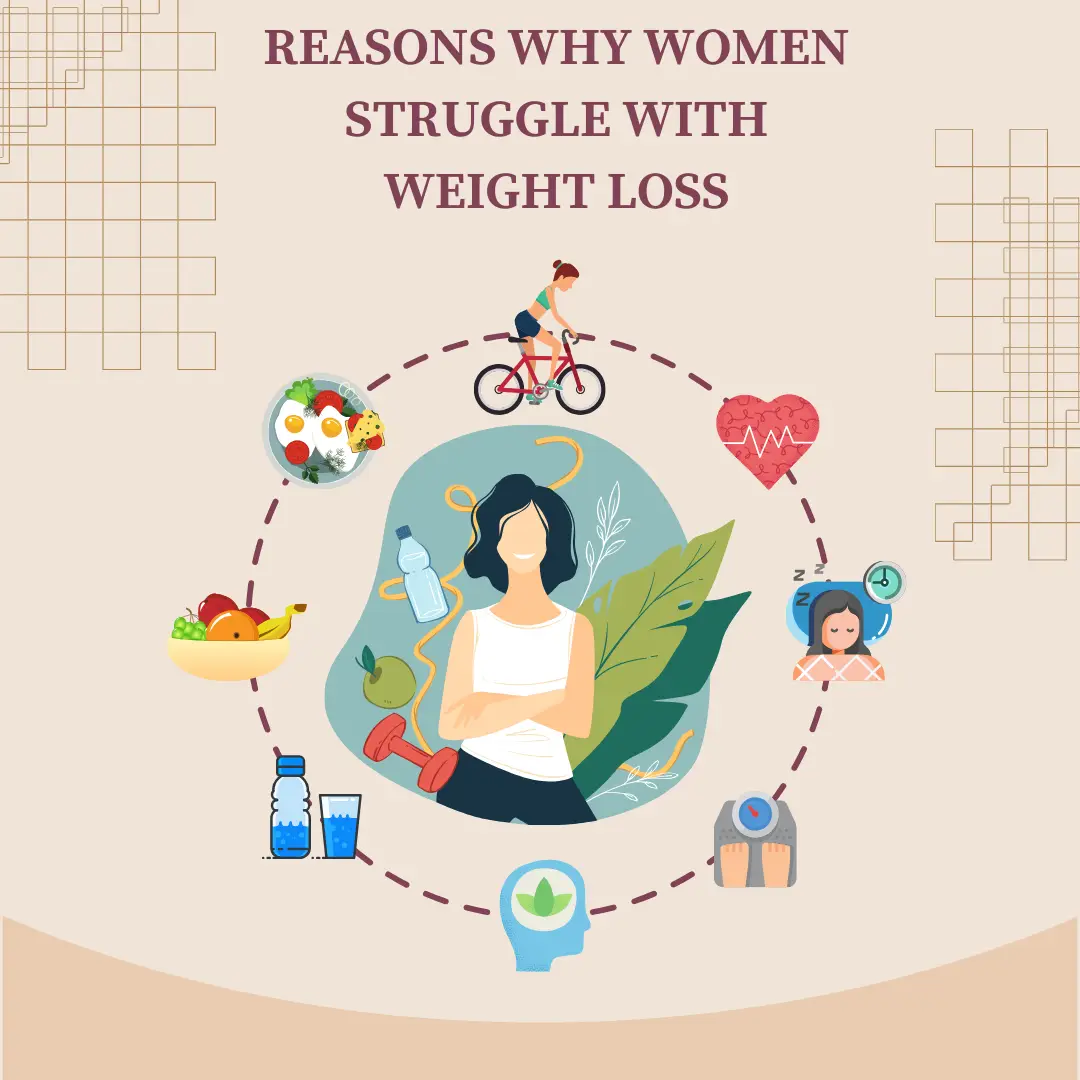Women can face various challenges when it comes to long-term weight loss due to a combination of physiological, social, and psychological factors. Here are some reasons why women might struggle with weight loss:
1. Hormonal Factors: Women’s hormones fluctuate throughout their menstrual cycle, during pregnancy, and during menopause. These hormonal changes can affect metabolism, appetite, and fat storage, making weight loss more challenging.
2. Metabolism Differences: Generally, women have a lower basal metabolic rate (BMR) than men, which means they burn fewer calories at rest. This can make it harder for women to create the calorie deficit needed for weight loss.
3. Body Composition: Women tend to have higher body fat percentages than men, and fat distribution can differ (such as carrying more weight around the hips and thighs). This can affect how and where fat is lost during weight loss efforts.
4. Social and Cultural Factors: Women often face societal pressures regarding body image and weight. This can lead to unhealthy dieting behaviors or unrealistic expectations, which may sabotage weight loss efforts.
5. Psychological Factors: Emotional eating, stress, and mood swings can affect women’s ability to stick to a weight loss plan. Women may also use food for comfort or as a coping mechanism more frequently than men.
6. Lifestyle Demands: Women often juggle multiple roles and responsibilities, such as caregiving, work, and household management. Finding time for exercise and meal preparation can be challenging, leading to less consistency in weight loss efforts.
7. Nutritional Needs: Women’s nutritional requirements can change throughout their life stages (e.g., pregnancy, menopause), requiring adjustments in diet that may not always support weight loss.
8. Medical Conditions: Certain conditions more prevalent in women, such as polycystic ovary syndrome (PCOS) or thyroid disorders, can make weight loss more difficult due to hormonal imbalances or metabolic issues.
9. Sleep Patterns: Poor sleep quality or insufficient sleep, which women often experience due to hormonal changes or caregiving responsibilities, can affect metabolism and appetite regulation, hindering weight loss efforts.
10. Genetic Factors: Genetic predispositions can influence how efficiently women metabolize food and store fat, making some more prone to weight gain or difficulty losing weight.
Addressing these challenges often requires a personalized approach to weight loss that considers individual factors such as hormonal balance, lifestyle demands, and psychological well-being. It’s important for women to focus on sustainable, healthy habits rather than quick fixes or extreme measures.
